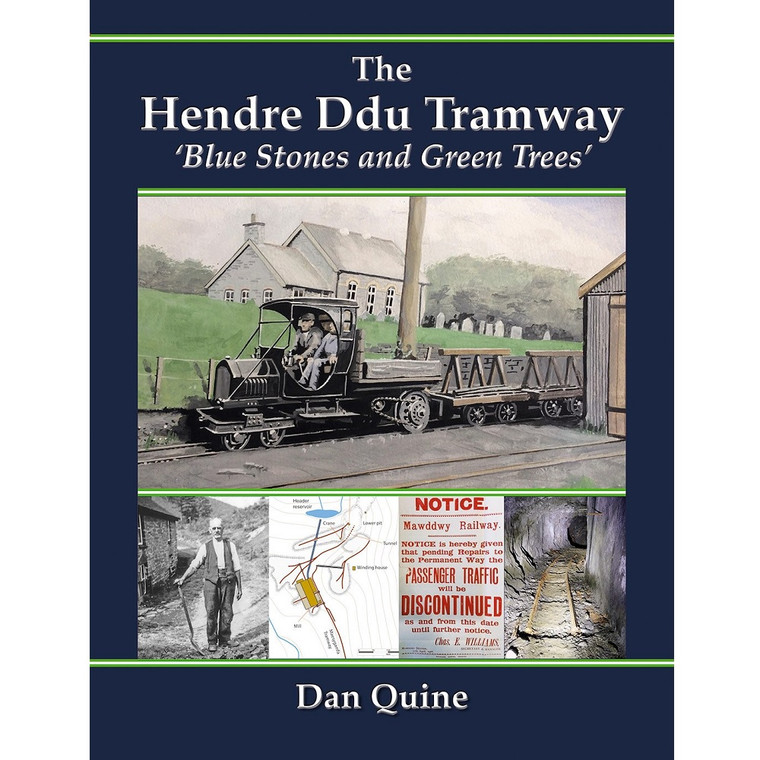North Wales is criss-crossed with narrow gauge railways, most serving the slate industry. Some of these lines achieved world-wide fame, others spent their lives in quiet obscurity. Perhaps none was more obscure than the Hendre Ddu Tramway. Yet its history is rich and its story deserves telling.
In the 1850s and 1860s, English industrialists arrived in the Dyfi Valley and purchased vast tracts of lands to form grand estates. The Buckleys, Bradwells and Waltons had a huge impact on this rural area, establishing slate quarries and building railways to carry the finished slab away. Edmund Buckley built the Hendre Ddu Tramway to connect his quarry to his Mawddwy Railway.
During the First World War the woods west of Aberangell were felled. New tramways were laid as Henry Sharrock Higginbottom made sure his colliery empire was kept supplied with pit props. After hostilities ceased, a boom in demand for slate saw speculators, entrepreneurs and outright conmen try their hand at slate quarrying. Most returned having lost a fortune.
Through all this, the Welsh worked the quarries and forests; the Pryce, Breese, Williams and Richards families, and many more. Some Welshmen soared, notably Edward Hurst Davies who ran the three major quarries connected to the tramway: Hendreddu, Gartheiniog and Maesygamfa.
This book tells the story of the place, the people and the tramway that connected them. Sourced from multiple archives, private notes and expert interpretation, it give a comprehensive view of the development, expansion and ultimate demise of the Hendre Ddu Tramway. Each of the quarries is covered in detail, and the long-forgotten forestry operations are described. The line’s unusual rolling stock and permanent way is explained and drawn, and its operating methods are reconstructed. The book is illustrated with previously unseen family photographs, comprehensive modern photography, and detailed maps and diagrams.224 pages. 275x215mm. Printed on gloss art paper, casebound with printed board covers.
ISBN13 : 9781915069153

